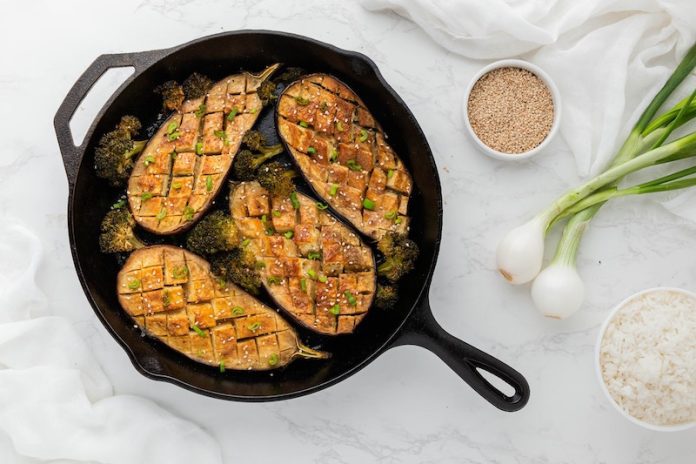
A vegan diet means not eating any animal products. That includes meat, eggs, and dairy. Instead, a vegan diet focuses on plants.
That means fruits, vegetables, grains, nuts, and seeds.
Here’s a simple guide to what you’ll eat more of, and what you’ll avoid on a vegan diet:
Eat More of These:
- Fruits: Apples, bananas, oranges, and berries are all great choices.
- Vegetables: Think leafy greens like spinach, colorful vegetables like bell peppers, and root vegetables like carrots.
- Grains: Foods like bread, pasta, rice, and oatmeal are all good. Just try to choose whole grains.
- Beans and Legumes: These are great sources of protein. Try black beans, lentils, chickpeas, and so on.
- Nuts and Seeds: These provide healthy fats. Try almonds, walnuts, flaxseeds, or chia seeds.
Avoid These:
- Meat: This includes beef, chicken, pork, and fish.
- Dairy: Milk, cheese, and yogurt are out.
- Eggs: No eggs, whether scrambled, fried, or in baked goods.
- Honey: Some vegans also avoid honey, as it comes from bees.
The Vegan Diet and Obesity Prevention: What Does Science Say?
Research shows that a vegan diet could help fight obesity. Here’s how:
Lower Calorie Intake:
Vegan diets are often lower in calories than diets that include meat. A study published in the Journal of General Internal Medicine found that people on vegan diets tend to consume fewer calories and have lower body weights.
High in Fiber:
Plant-based foods are high in fiber, which can help you feel full and eat less. According to the Journal of Nutrition, a high-fiber diet is associated with lower body weight.
Lower Fat Intake:
Animal products often contain high amounts of saturated fat. By avoiding these foods, vegans typically consume less fat overall.
A Day on a Vegan Diet
Wondering what you might eat in a day on a vegan diet? Here’s an example:
- Breakfast: Oatmeal with berries and a sprinkle of flaxseeds.
- Lunch: A big salad with lettuce, tomatoes, cucumber, chickpeas, and a vinaigrette.
- Dinner: Lentil soup with a slice of whole grain bread.
- Snack: A handful of almonds and an apple.
Tips for Starting a Vegan Diet
Thinking about trying a vegan diet? Here are some tips:
- Take it Slow:
You don’t have to go vegan overnight. Try one vegan meal a week to start.
- Try New Foods:
There are plenty of delicious vegan foods out there. Try some new ones.
- Read Labels:
Some foods might seem vegan, but they have hidden animal products. Reading labels can help.
- Consider a B12 Supplement:
Vitamin B12 is mainly found in animal products. Vegans might need a supplement to get enough.
A vegan diet can be a good way to prevent obesity. It’s high in fiber and low in calories. If you’re thinking about trying a vegan diet, talk to a doctor or dietitian.
They can help you make sure you’re getting all the nutrients you need. Remember, every step towards eating more plants is a step towards better health.
If you care about weight loss, please read studies that hop extract could reduce belly fat in overweight people, and early time-restricted eating could help lose weight.
For more information about weight loss, please see recent studies that the Mediterranean diet can reduce belly fat much better, and the Keto diet could help control body weight and blood sugar in diabetes.
Copyright © 2023 Scientific Diet. All rights reserved.








